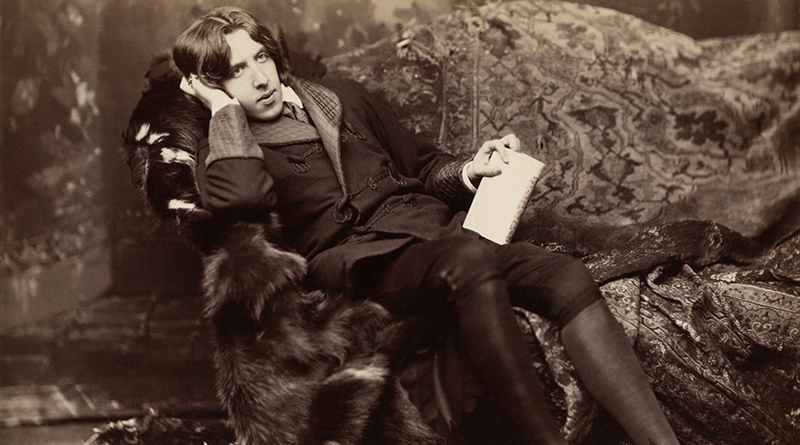With the departure of Soltykof, Catherine’s passion for him quickly cooled. It was ever thus in all her affairs of the heart. The absence of a lover invariably had the effect of extinguishing the fire of the hottest passion into which she flung herself. It was not that she forgot — she never forgot, and her treatment of those she had once loved was always generous — she simply ceased to care. In her later years, when her passions for men degenerated into the prostitution that has left such an indelible stain on her fame, a fresh face had always the power of creating a fresh fancy. But in her youth and prime it was only separation that could snap the spell of a sexual enchantment.
No sooner had Soltykof gone into exile than there arrived at St. Petersburg a personage who was destined to indemnify her for his loss. This was Stanislas Poniatowski, one of the most romantic adventurers of the eighteenth century. His origin, on his father’s side at least, was very obscure. For the latter was not a Poniatowski at all, but the illegitimate son of a Count Sapieha and a Polish Jewess whom the Poniatowskis had adopted, for what reason is unknown. But base-born though he was, he had brains and luck, which enabled him to marry a Czartoriski, which family was the most illustrious and most powerful in Poland.
Fortune, however, though it blessed this union with several children, failed to provide their parents with the means necessary to maintain a position worthy of their rank. Consequently when Stanislas was sixteen his parents, taking advantage of the fact that the Elector of Saxony was also the King of Poland, sent him to Dresden on the chance of his procuring there the employment that they had been unable to obtain for him at Warsaw. For capital he had nothing more substantial than extraordinary good looks and great ambition. Failing to invest either profitably at Dresden, the boy had wandered on to other cities in Germany, whence he passed into France and England, always with the same object. In Paris he made friends in high places, but debt brought him to prison, from which the generosity of the celebrated Madame Geoffrin, in whose salon he had shone for a moment, effected his release. Disgusted with this experience, Stanislas next went to London, where after five years of vagabondage his luck suddenly changed.
Wretched though his condition was, his name was still a passport to society. At some social function, very likely at the Polish Embassy, he met Hanbury Williams, one of the craftiest diplomatists and most brilliant libertines of the age. Stanislas, with his youth, his beauty, and a temperament almost feminine in its refinement, could not fail to attract the notice of such a man, whose type is familiar enough to the readers of that class of fiction which is said “to leave a nasty taste in the mouth.” To Williams, who had just been appointed Ambassador to Russia, young Poniatowski was a veritable trouvaille [find]. In his diplomatic career he had acquired a great deal of useful information in regard to the chief personalities at the Russian Court. He knew that the health of the Empress was extremely precarious, and that her successor was as incompetent as his wife was clever; it was the latter, then, whose favour his cunning told him he should attempt to win.
“Who knows,” thought Williams, “in a country like Russia all things are possible, and some fine morning a palace revolution may turn this Grand Duchess, like Elizabeth before her, into an Empress in her own right.”
As the means to his end Poniatowski seemed specially suited. Williams had heard enough of Catherine to infer that she was not averse to an intrigue, and great though her devotion might be to the banished Soltykof — was it not the gossip of the ante-chambers that she had once waited for him till three in the morning at a rendezvous to which he never came? — the wily diplomatist was too much of a cynic to believe in the deathlessness of any passion. Broken hearts could always be mended, and who was more likely to patch together deftly the shattered fragments of the Grand Duchess’s than his charming young Pole? So Williams, who had already won his affection by numerous little attentions, bound the ties of gratitude, on which he based the success of his political mission to Russia, the tighter by taking Poniatowski with him to St. Petersburg as his secretary.
The project worked like a charm. To Catherine William’s protégé was a revelation. If not quite as handsome as Soltykof, he had what Soltykof had lacked, and what Catherine till then had never suspected the existence of — an artistic soul. Poniatowski had mixed in the best society in Paris and London; he possessed a most cultivated mind, and he could talk enthusiastically and sensibly of literature, art and philosophy, subjects that deeply interested her. And with all the charm of his person and the glitter of his mind he had sensibility, a peculiar Byronic air and temperament that had not yet been acquired or developed in Russian society. In a word, Stanislas Poniatowski had a heart, which Catherine determined to win.
The danger of such an intrigue was from the first apparent to the young Pole, but the society of Williams had tinged his natural courage with cynicism and prosperity had revived his ambition. In Catherine, moreover, there was something of the basilisk, and she seldom failed even in old age to strike a responsive chord in the breast of the man on whom she had fixed her eyes. Poniatowski was the last in the world to resist the appeal she made to his senses.
“She was,” he says in the memoirs which he wrote at the end of the delirious career to which her spell now lured him, “at that perfect moment which is generally for women who have beauty the most beautiful. With her black hair she had a dazzling whiteness of skin; eyelashes, black and very long; a Grecian nose, a mouth that seemed made for kisses; perfect hands and arms, a slim figure, rather tall than short; an extremely vivacious manner, but full of nobility; while the sound of her voice was agreeable, and her laugh as cheerful as her nature, which caused her to pass with facility from the most sportive, the most childish amusements to the driest mathematical calculations. So,” he adds ingenuously, “in gazing at the Grand Duchess, I forgot that there was a Siberia.”
The lovers, conscious of the perils of detection, behaved with the greatest prudence and caution. But not even the cunning of Madame la Ressource was able to avert suspicion. An accident which very nearly proved fatal to Poniatowski brought the liaison to the knowledge of Peter. The Pole, who was in the habit of disguising himself as a “ladies’ tailor or one of the Grand Duke’s musicians” in order to get access to Catherine, was caught slipping out of the Chateau of Oranienbaum in the early hours of the morning, and dragged roughly by the soldiers who seized him into the presence of the Grand Duke.
“Confide in me,” said Peter, who had conceived almost as great a liking for Poniatowski as Catherine herself, “and it can all be arranged.”
He was absolutely indifferent to his wife’s conduct. She could live as she pleased for all he cared, so long as she did not come between him and his mistress Elizabeth Vorontzof. Of this woman the French Ambassador declared, “It is impossible to imagine anything uglier than her face; she is in every way like a servant at a low inn.” In this, however, lay her charm for Peter; boon companion as well as mistress, she was ever ready to get drunk with him. But though Peter’s complaisancy in regard to Catherine’s infidelities was well known, it was not to be relied on. So, fearing more for his mistress than for himself, Poniatowski chivalrously refused to explain how he came to be at Oranienbaum at such an hour and in disguise.
His silence only served to exasperate Peter, who in a fit of passion would have run him through on the spot with his sword but for the friendly intervention of a compatriot who chanced to be present. Peter, hereupon, had recourse to dissimulation. Feigning to believe that the Pole’s nocturnal visit threatened his life rather than his honour, he had him placed under arrest.
Catherine, however, succeeded in procuring his release after two days by resigning herself to the degradation of supplicating Elizabeth Vorontzof to intercede for him. Flattered by the sight of the Grand Duchess, who had ever treated her with contempt, at her feet the Vorontzof deigned to be magnanimous; and at his mistress’s request Peter at last consented to release Poniatowski. But perhaps the manner in which he forgave his wife’s lover was even more degrading to Catherine than the necessity which had obliged her to humble herself to Elizabeth Vorontzof.
“What a fool you have been!” he exclaimed when the Vorontzof brought the Pole into his presence. “It could all have been arranged before if you had only taken me into your confidence.”
In such circumstances it was easy for Poniatowski to regain the favour he had lost, and Peter’s good-humour being increased by apology and flattery he suddenly declared with a laugh that since they were all reconciled there was but one person wanting to complete their happiness.
“And with that,” relates Poniatowski, “he went into his wife’s bedroom, pulled her out of bed without leaving her time to put on her stockings or shoes, or so much as a petticoat, and said as he brought her back with him, ‘Well, here he is, and now I hope you are satisfied.’ Whereupon we all sat down to supper merrily, and did not separate till four in the morning!”
— Seven Splendid Sinners (published 1909), by W. R. H. Trowbridge.






